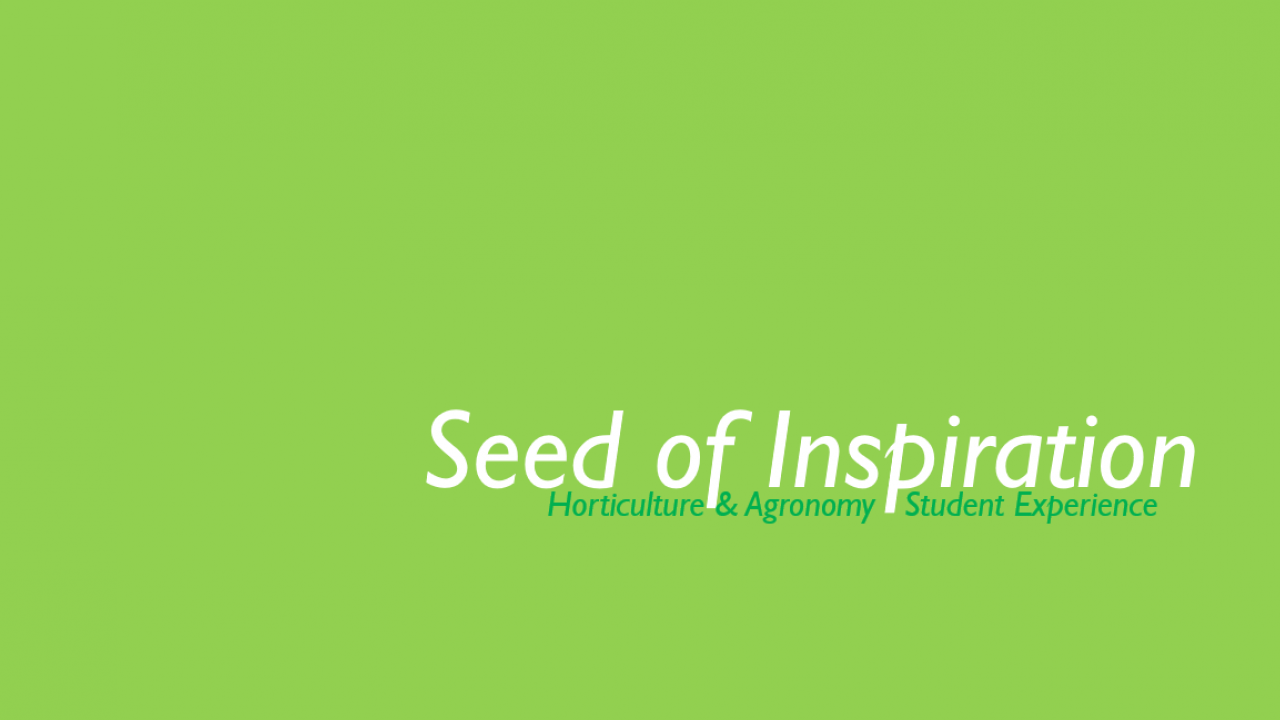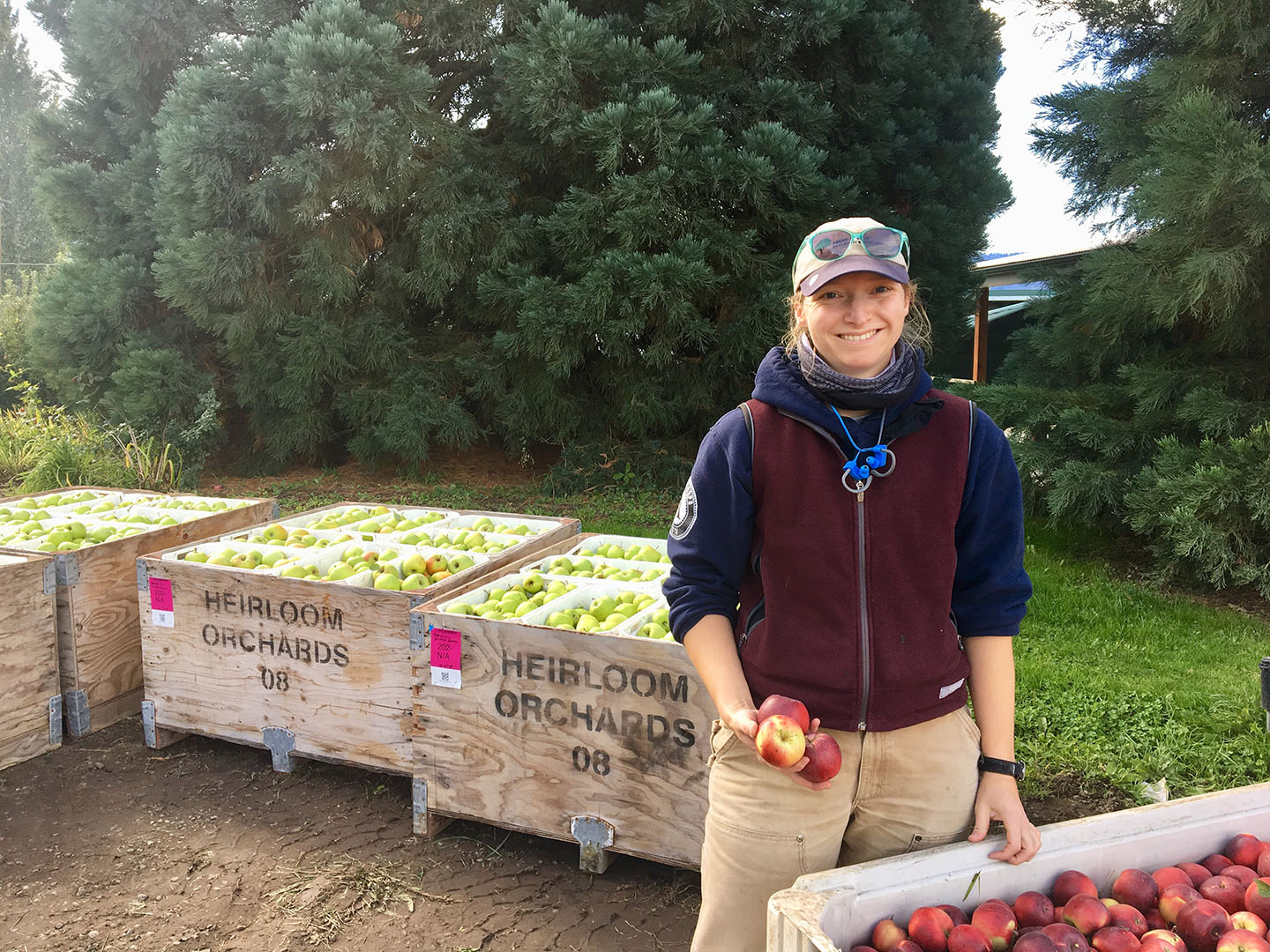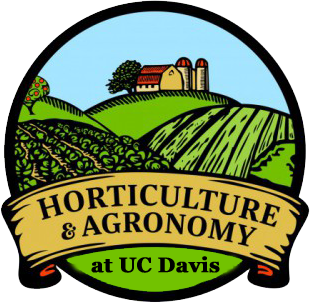
The Pomological Pursuit of Happiness
Emily Johnson reflects on her experience within the UC Davis Horticulture and Agronomy Graduate program and how it has shaped her career in pomology.

Heirloom Orchards sits south of the Columbia River in north central Oregon. Comfortably nestled between history and novelty, this family-owned orchard is known for its pears and more than 20 seasonal varieties of organic apples. Emily Johnson, the Assistant to Farm Manager, works diligently to provide optimal orchard management practices that promote tree health and maintain fruit quality and production.
Johnson’s primary responsibilities include performing apple maturity tests to determine harvest dates, completing juice quality and chemistry evaluations to advertise their apples to cider makers, and lending a helping hand in the packing house. However, her duties expand far beyond apples: she also researches the best cover crops, planting arrangements, nursery and nutrient plans, and more.
So what is the best part about working for a pome orchard? According to Johnson, “no two days are alike.”
As a vital contributor to the success of Heirloom Orchards, Johnson has honed her craft in research and perfected her approach to experimentation at UC Davis. Through the Horticulture and Agronomy Master’s program, she has completed her thesis, successfully applying all of the concepts, techniques, and methods she absorbed from performing her own countless hours of research.
Rooted in the USDA almond rootstock breeding program, Johnson selected 20 genotypes of wild peach, plum, and almond species that held the potential for a highly desired trait—disease resistance. Specifically, these varieties were resistant to soil-borne pathogens. They were also a popular choice as parent genotypes in relation to breeding interspecific hybrids. As an aspiring pomologist, Johnson focused her two-year project on the possibility of clonally propagating leafy, semi-softwood cuttings of the aforementioned genotypes in different concentrations of the rooting hormone, IBA.
Although her primary focus was her research, Johnson recalls that her graduate school experience was more than that. The highlights of her academic career were, at times, the small things, such as department happy hours and coffee-bagel donut day. She recalls that the most influential experience was “surrounding [her]self with passionate and inquisitive people.”
Encouraging others to take the leap, Johnson advises prospective candidates to put oneself out there and socialize with fellow graduate students and professors. They are one’s strongest support system and will be key when searching for careers and solving puzzling predicaments in the future.
Emily Johnson graduated with a Master's degree in Horticulture and Agronomy in 2019 and now works full-time as an Assistant to Farm Manager at Heirloom Orchards in north central Oregon.
